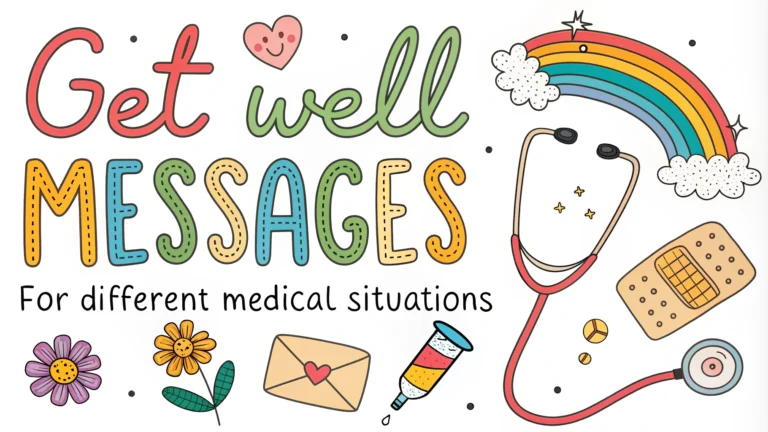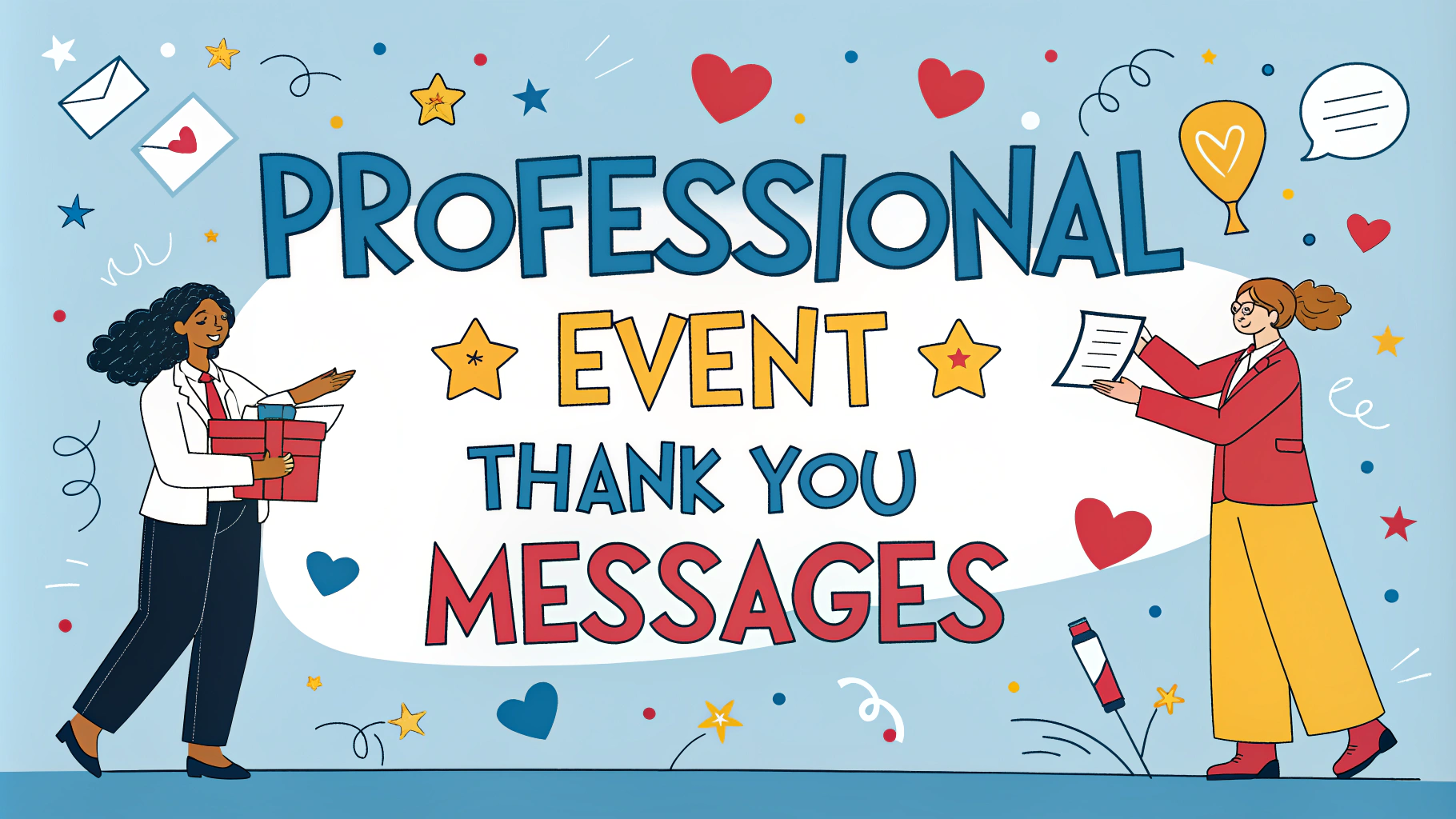Finding the right words to comfort someone who’s unwell can make a meaningful difference in their recovery journey.
Quick Message Templates for Common Health Situations
For Surgery Recovery
- “Take it easy and let others help you heal – wishing you a smooth recovery”
- “Looking forward to seeing you back on your feet soon”
- “Rest well and follow doctor’s orders – sending healing thoughts”
For Cold & Flu
- “Hope you’re getting plenty of rest and chicken soup”
- “Take care and don’t rush back until you’re fully better”
- “Sending virtual vitamin C and get well wishes your way”
For Hospital Stays
- “Thinking of you during your hospital stay”
- “May each day bring you closer to coming home”
- “The nurses must love having such a great patient”
Tips for Writing Thoughtful Get Well Messages
Keep messages brief and positive, focusing on recovery rather than the illness.
Offer specific help instead of vague statements like “let me know if you need anything.”
Consider the severity of the situation when choosing your tone and words.
What to Avoid
- Comparing their situation to others
- Giving medical advice
- Making the message about yourself
- Using phrases like “everything happens for a reason”
Practical Ways to Show Support
- Send a care package with their favorite snacks and entertainment
- Offer to help with specific tasks like picking up groceries or walking their dog
- Schedule regular check-ins via text or phone
- Coordinate meal deliveries with other friends and family
Digital Options for Sending Well Wishes
- E-cards from sites like Blue Mountain or Paperless Post
- Video messages through Marco Polo or similar apps
- Digital gift cards for food delivery services
Remember to follow up after your initial message – recovery often takes time, and continued support matters.
When to Send Professional Support Resources
Include contact information for patient advocacy groups or support services when appropriate.
| Situation | Resource |
|---|---|
| Cancer Support | American Cancer Society: 800-227-2345 |
| Mental Health | NAMI Helpline: 800-950-6264 |
| Heart Health | American Heart Association: 800-242-8721 |
Additional Ways to Support Long-Term Recovery
Recovery from serious illness or surgery often extends beyond the initial healing period. Creating a sustained support system can significantly impact someone’s healing journey.
Long-Term Support Ideas
- Set calendar reminders for follow-up appointments to check in
- Create a rotating schedule with other friends for ongoing assistance
- Help organize medical paperwork or set up medication reminders
- Accompany them to follow-up appointments if needed
Supporting Caregivers
Remember that caregivers often need support too. Consider extending your help to family members who may be overwhelmed with caregiving responsibilities.
Caregiver Support Options
- Offer respite care to give primary caregivers a break
- Bring meals for the whole family
- Help with household maintenance or yard work
- Listen without judgment when they need to vent
Conclusion
Supporting someone through illness or recovery requires thoughtfulness, consistency, and practical assistance. Remember that your presence and support can make a significant difference in someone’s healing journey, whether through words of encouragement or tangible help.
The most important aspects are maintaining regular contact, offering specific assistance, and being mindful of both the patient’s and caregivers’ needs throughout the recovery process.
Final Reminders
- Stay connected but respect boundaries
- Be consistent with your support
- Adjust your assistance as needs change
- Remember that small gestures can have big impact
FAQs
1. What are appropriate get well wishes for someone having surgery?
“Wishing you a smooth surgery and speedy recovery,” “May you heal quickly and completely,” or “Sending prayers for successful surgery and swift healing” are all suitable messages that show support without causing anxiety.
2. How do I write a get well message for someone with a serious illness like cancer?
Messages should be encouraging but realistic, such as “You’re in my thoughts as you go through treatment” or “Your strength inspires me. I’m here for you every step of the way.” Avoid making promises about outcomes.
3. What’s the best way to word get well wishes for a child who is sick?
Keep messages light and positive, like “Get well super soon, brave warrior!” or “Missing your smile – hope you’re back to playing and having fun very soon!” Include cheerful elements that might make them smile.
4. Should get well messages be different for mental health versus physical health issues?
Yes, mental health messages should focus on support and understanding rather than “getting better quickly.” Use phrases like “I’m here for you” or “Take all the time you need – I’m thinking of you.”
5. What are appropriate get well messages for a work colleague?
Keep messages professional but warm: “Hope you’re feeling better soon,” “The office isn’t the same without you,” or “Take care and focus on getting well” are appropriate options.
6. How do I write a get well message for someone in long-term recovery?
Focus on ongoing support rather than quick recovery: “Taking it one day at a time with you,” “Your progress matters more than your speed,” or “I’m here for the long haul” are good options.
7. What should I avoid saying in get well messages?
Avoid phrases like “everything happens for a reason,” comparisons to others’ illnesses, unsolicited medical advice, or focusing too much on the illness details. Keep messages supportive and positive.
8. Is it appropriate to include humor in get well messages?
Humor can be appropriate if you know the person well and understand their situation. Light humor can lift spirits, but avoid jokes about their condition or potentially sensitive topics.
9. What are good get well messages for someone after an accident?
Focus on recovery and support: “Thinking of you as you heal,” “Take it easy and let others help,” or “Wishing you comfort and strength during your recovery” are appropriate messages.
10. How can I make a get well message more personal?
Include specific memories, reference shared experiences, mention things you know they enjoy, or offer specific help like “I’ll bring your favorite soup on Thursday” to make messages more meaningful and personal.







